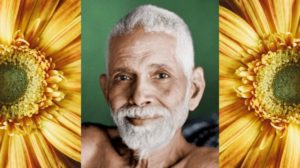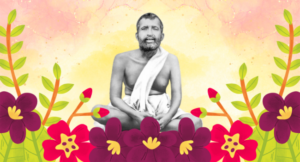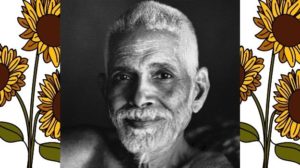Portions of the following post have been taken from an article published in the Akhand Jyoti, a magazine of the Gayatri Pariwar, founded by Pandit Shriram Sharma Acharya. In this excerpted conversation Shriram Sharma Acharya explains in a wonderfully simple way, why a mere verbal repetition of mantras (like a parrot) is not sufficient to take us to God-realization. Instead the mind and heart must also synchronize with the outward chanting. This inner synchronization is possible only if we grasp the true meaning of the mantra and accordingly work hard to transform all our thoughts and actions. Without such a purification of the mind and heart no amount of outward chanting will bear fruit.
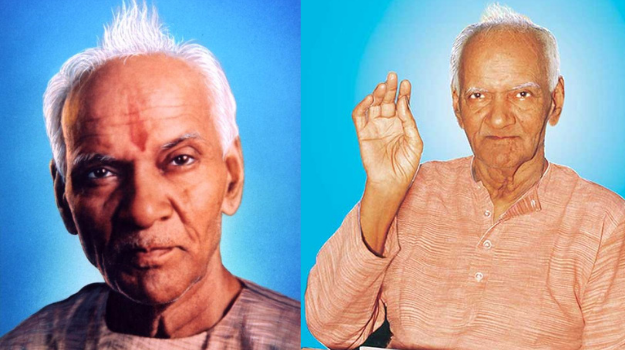
– Shriram Sharma Acharya
Shriram Sharma Acharya on Mantra Siddhi
One day a disciple of Gurudev Shriram Sharma Acharya asked him: “Gurudev! You have chanted the Gayatri mantra millions of times. I know many others who have chanted the Gayatri mantra similarly, but why could they not attain Siddhi (God-realization) like you?”
Gurudev smiled and said: “My son, I have chanted the Gayatri mantra, but along with it I have worked hard to refine my inner self (my mind and its bad tendencies). Without doing this no spiritual powers can be attained. All attempts are futile.”
“I have washed my mind like a washerman scrubs dirty clothes. How can a person attain to God-realization by outwardly chanting mantras alone?”
After saying this Gurudev narrated an incident which he himself had witnessed. “Two ascetics were doing Tapa-Sadhana (meditation, mantra chanting and austerities) in the Himalayas. Both lived without clothes and observed complete silence. There was a small piece of land on which roots, vegetables and fruits could be grown. They lived in the caves and ate these fruits and vegetables.
Once during the summer both of them started cleaning out the area around their caves. This operation continued for 2 days. One day one of them occupied a small portion of the land that was supposed to belong to the other.
Seeing this the second ascetic got very angry. Frowning he asked the first fellow to vacate the land immediately. Although they were both observing a vow of silence, the quarrel escalated and reached the stage of kicking and punching. The first one plucked out the beard of the second and as a result his chin started bleeding.”
Revered Gurudev continued: “I wondered what kind of ascetics doing sadhana (spiritual practice) in the Himalayan caves were these?”
“Shame on such a sadhana! Unless a person can refine his mind (his thoughts, his ego and greed) nothing worthwhile can be achieved in spirituality, what to talk of mantra siddhi. Even if some spiritual powers are attained they will serve no purpose other than destroying oneself like Bhasmasura.”
Detour: The Story of Bhasmasura
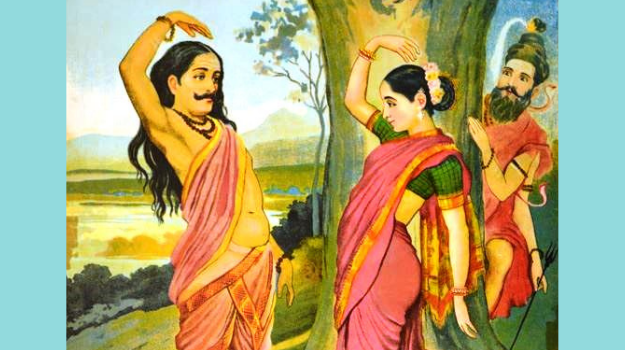
The story of Bhasmasura for those who are not familiar, is the story of a demon who had performed such a great penance that Lord Shiva became pleased and appeared before him. Upon seeing the Lord, Bhasmasura asked for an unusual boon. He requested that anyone upon whose head he placed his hand, would immediately be turned to ashes.
Lord Shiva granted him this boon, but Bhasmasura being a demon (meaning a person who had not purified his inner self) could not properly digest the immense spiritual power so granted. Uncontrollable greed and lust immediately rose up in his egotistical heart.
He began to eye Lord Shiva’s wife, the beautiful and talented Goddess Parvati and decided that if he got Lord Shiva out of the way, he could marry her. So he began to chase the Lord trying to turn him to ashes. Shiva helplessly began to run, and soon took shelter with Lord Vishnu.
After listening to Shiva’s predicament, Lord Vishnu decided to help and turned himself into an exceedingly beautiful lady, Mohini. Then he appeared before Bhasmasura. Mohini was so charming and pretty that Bhasmasura could not control himself and immediately fell in love with her. He wanted to marry her, but Mohini had a condition – she would only marry the man who could replicate her dance moves perfectly.
Bhasmasura agreed and began to dance with her. The dance went on for a long time. Engrossed in dancing, with his mental processes entirely clouded by an insatiable lust for Mohini, Bhasmasura soon forgot about the boon of Lord Shiva. When Mohini struck a pose, placing her hand on her head, he thoughtlessly copied her move and was immediately reduced to ashes.
In this way the spiritual power attained by the egotistical, greedy and lustful Bhasmasura, ultimately worked against him and became the cause of his own demise. For this reason, refinement of thoughts, deeds and character are the essential foundation upon which any successful spiritual endeavour rests.
Continued: Shriram Sharma Acharya on Mantra Siddhi
Returning to Gurudev Shriram Sharma’s discourse: “Bhagiratha rishi also performed immense penance but it was all for social welfare. He abandoned everything for the public good and only then was he able to bring Mother Ganga to earth and quench the thirst of humanity. Had Bhasmasura nurtured a similarly noble objective, he too would have been able to help many people.”
“He could have asked Lord Shiva for such a boon that would have allowed him to cure any person simply by placing his hand on their head. But he could not think of performing such virtuous acts because he had not refined his inner self. So long as there is lurking greed, attachment and sensuality within a person, he/she cannot rise in their Sadhana (spiritual practice). These demonic tendencies pull a Sadhak (spiritual aspirant) downwards.“
“Only after passing the preliminary goal of self refinement can a person steadily climb up the ladder of spirituality. I lived on jowar roti (bread of millet) and buttermilk for 24 years. I did not take any salt, sweets or spicy food. I brought the tongue under control; only then could I control the mind. If the taste buds are controlled, all the 10 senses and the mind are easily controlled. Once mental control is achieved, realization of the Self becomes easy whether the sadhak is Jain, Muslim, Buddhist, Christian or Hindu.”
Note: In Vedanta a tremendous emphasis is laid upon controlling of the tongue (the organ of taste and speech). Once the sense of taste is brought under-control, the sexual instinct is also automatically conquered. It is a yogic observation that the two are intimately linked. The desire to enjoy tasty food is always accompanied by an increase in lustful tendencies in the mind and vice versa. Moreover since the tongue is the organ of taste and speech therefore, controlling the sense of taste also leads to a control of one’s speech, which in turn leads to a control of one’s thoughts, emotions and desires. In this way once the mind is brought under control the realization of the Self becomes easy.
Once Shriram Sharma Acharya visited the continent of Africa. There a disciple showed him a pet parrot, who had been trained to chant the Gayatri Mantra in perfect Sanskrit. Later Shriram Sharma Acharya would often use the example of this parrot to emphasize that a mere outward repetition of the Gayatri Mantra (similar to the parrot), is not sufficient to take us to the doors of God-realization. If this was the case then even that parrot could have attained to Samadhi.
Instead chanting of the Gayatri Mantra (or any Mantra for that matter) is successful only when its true meaning is permanently inscribed in the heart, through the transformation of each and every thought and action. We must become living embodiments of the Mantra. Only then can we truly become Siddha (Enlightened, God-realized).



